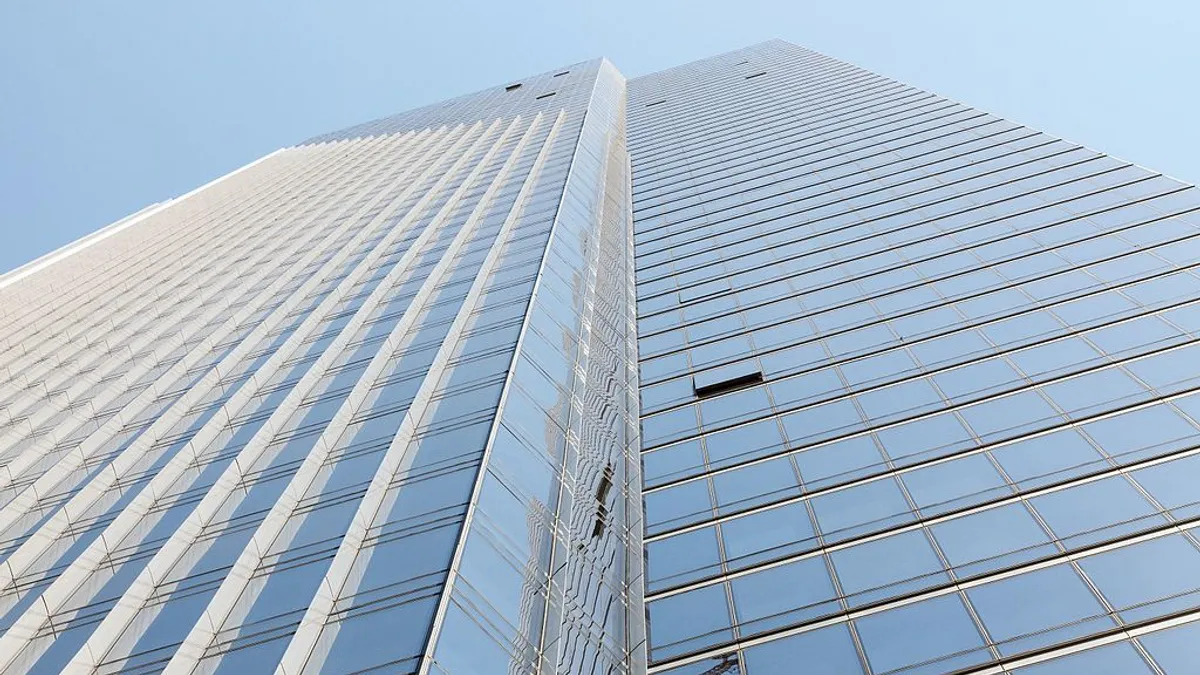Dive Brief:
-
The San Francisco Bay Area's Transbay Joint Powers Authority (TJPA) has spent $3.5 million in legal fees since December to defend against claims that construction of its Transbay Transit Center contributed to the sinking and leaning of the 58-story Millennium Tower, according to the San Francisco Chronicle. The TJPA said the fees could continue to climb, but it expects Transbay contractors or their insurers to reimburse a large share.
-
Developer Millennium Partners alleges that construction crews for the transit center, which is being built near the Millennium Tower, pumped out millions of gallons of groundwater and weakened the soil to the point that the high rise settled more rapidly and significantly than expected.
-
Engineers hired by a group that includes Millennium Partners said the sinking can be stopped by drilling piles into the bedrock below the building at a cost of up to $150 million. An engineering report paid for by the city found that the building could withstand a magnitude 8.0 earthquake.
Dive Insight:
If the sinking issue was because contractors working on the Millennium Tower had made a mistake during construction, then the contract would have likely given the parties some direction as to how to resolve the dispute. But the presence of an avenue for resolution doesn't always equate to an inexpensive or speedy fix.
The average value of North American construction disputes decreased in 2016, though they still valued around $21 million, according to design, engineering and management consulting firm Arcadis' 2017 Global Construction Disputes Report. In addition, the report noted, disputes in North America took two months longer to resolve in 2016 than in 2015, making the region home to the world's longest construction disputes process.
The disputes in question range from condo association claims of leaky windows to defective work at commercial properties like hotels and restaurants.
Last year saw homebuilders KB Home and D.R. Horton spend millions to settle defect claims at single-family and condo developments in Florida.
In June of 2016, AECOM Hunt paid the Cachil Dehe Band of Wintun Indians $20 million to settle a lawsuit concerning claims of defective work at a hotel and two restaurants at the Calusa Casino complex near Sacramento, CA.
Five years after AECOM Hunt completed the work, the tribe said it closed the hotel due to leaks, improperly installed fire sprinklers and other safety and structural issues. Eventually, Hunt, along with the project's architect and subcontractors, settled with the tribe. The tribe then hired another construction company to make the repairs.













